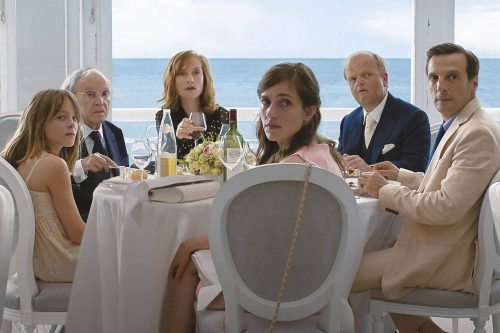
Austrian filmmaker Michael Haneke takes grotesque glee in poking itty-bitty holes through the thin, delusional veneer of OK-ness that barely protects us from the submerged chaos of modern life. In Funny Games, for instance, a pair of preppy boys politely invades the vacation home of a rich family and, literally and figuratively, proceeds to skewer the cozy bubble of their status and privilege. At first glance, Haneke’s latest film, the domestic psychodrama Happy End, seems to be more subdued (and somewhat less bloody) than its predecessors, but don’t be fooled: This might be Haneke’s greatest work, a kind of post-Brexit existential nightmare centering on an extended French family attempting to carry on, blindly and blithely, as the world comes apart from without and within. With icy precision and ecclesiastical despair, Happy End depicts modern life as a free-fall toward nihilism, in which other people’s tragedies are treated with barely concealed contempt — an inconvenience to be eluded without losing face. Like Todd Solondz, the American director with whom he shares more than a passing resemblance, Haneke gazes unflinchingly at the bourgeois pieties and consumer conveniences that allow us to disregard both our own corruption as well as the mounting terrors of contemporary life. The way those ignored terrors come back and bite us in the ass is Haneke’s favorite subject, and he’s as relentless in portraying them as Hitchcock and Lynch. For sure, it ain’t always easy to pick up what Haneke is laying down, but there is no denying the urgency of his art.
Happy End opens Friday, Feb. 23, at Broadway Metro; one week only, so don’t hesitate.